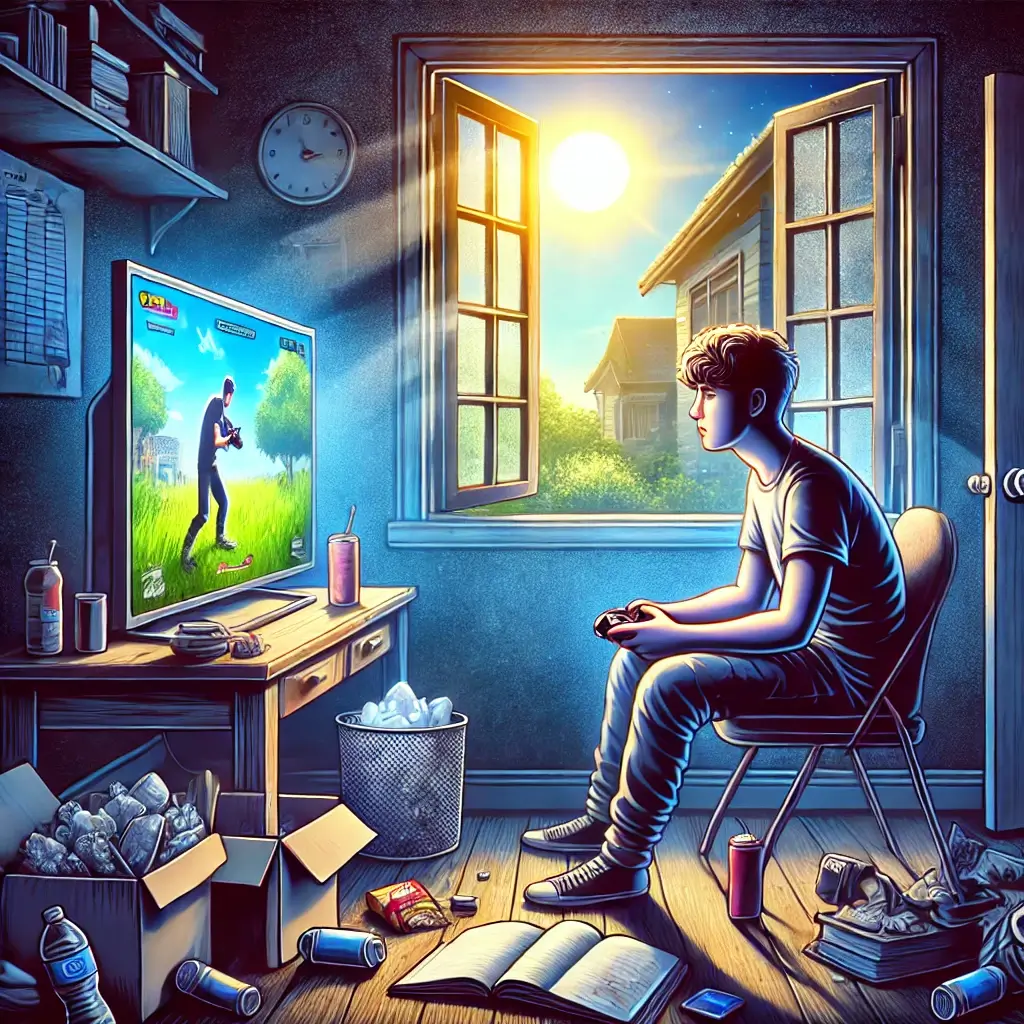Understanding Compulsive Video Game Playing in Young People
As is the case with many other hobbies, excessive usage of video games can become harmful for adolescents. Video games have become a popular source of entertainment for adolescents. A growing number of people are becoming concerned about video game addiction, even though it is not yet recognized as a mental disorder by the DSM-5 (Diagnostic and Statistical Manual of Mental Disorders). Everything you need to know about the addiction that teenagers have to video games is as follows:
Identifying Symptoms and Signs
One of the most important indicators is the amount of time spent gaming. Students who are battling with addiction may place a higher priority on gaming than they do on other activities that are equally as important, such as academics, socializing, hobbies, or spending time with their families. They may play video games for hours, ignoring their obligations and sleep.
Withdrawal Symptoms and Cravings
As a result of being unable to play, adolescents may experience withdrawal symptoms such as irritability, anxiety, and even depression. They might feel restless and experience cravings or want to play at times when they are not actively participating in gaming.
Neglecting Other Aspects of Life
Addiction to video games can result in a reduction in academic performance, strained relationships with friends and family, and a loss of interest in things that were previously liked.
Deception and Secrecy
Teenagers who are battling with addiction may engage in deception or secrecy, such as lying about the amount of time they spend gaming or concealing their gaming experiences.
Impact on Mental Health
The effects of excessive gaming on mental health can be significant and far-reaching, and they can have a significant impact on mental health. Because of the continual stimulation and pressure to do well in the virtual world, those who engage in gaming for an unhealthy period may suffer elevated levels of anxiety and tension. This is because the amount of time spent gaming can hurt an individual’s emotional well-being.
Social Withdrawal and Isolation
Because of this continuous exposure to gaming, the individual may become withdrawn from real-world social relationships and find it difficult to engage in other activities that are important to them. This can also lead to the development of depressive symptoms.
Exacerbating Mental Health Concerns
To add insult to injury, the isolating nature of overeating may make these mental health concerns much more difficult to contend with. As individuals spend more time absorbed in the gaming world, they may become more and more detached from their friends, family, and the wider social support network that is essential for maintaining healthy mental health.
The Cycle of Loneliness and Low Self-Esteem
These feelings of loneliness, low self-esteem, and a sense of being removed from the real world can be further perpetuated by social isolation, which can further prolong these feelings.
Balancing the Benefits and Risks
This is to acknowledge that gaming may have good effects when done in moderation and as part of a healthy lifestyle. These benefits include the enhancement of cognitive abilities, the development of social relationships, and the provision of a means of relieving stress.
The Vicious Cycle of Addiction
Nevertheless, when gaming becomes an all-consuming and unhealthy preoccupation, it can hurt an individual’s mental health, leading to a vicious cycle of anxiety, despair, and social isolation. This effect can be detrimental to the individual’s mental health.
Factors Contributing to Addiction
Video games can offer a sense of escape from reality and a way to relax and unwind. Players can take advantage of this. On the other hand, gaming may have the potential to become an unhealthy coping method for adolescents who are battling with stress or social anxiety.
Social Connection and Community in Gaming
Playing games online can give a sense of belonging and social connection, particularly for adolescents who may have trouble interacting with others in real life. However, this can potentially become a substitute for actual social connections in real life.
The Reward System in Video Games
A great number of video games are produced to be extremely rewarding. These games include points, achievements, and virtual progression, all of which have the potential to activate the brain’s reward system and encourage compulsive behaviors.
Helping Teenagers in Need
Communicate openly with your adolescent child about the need to maintain healthy gaming habits and the potential dangers of addiction. Take the time to hear their point of view and issues without passing judgment.
Setting Boundaries and Restrictions
When using video games, it is important to establish clear guidelines and time restrictions. You might want to think about providing incentives for adhering to these restrictions.
Encouraging Alternative Activities
Allow your adolescent to engage in activities that they find enjoyable, such as sports, hobbies, spending time with friends and family, or creative interests.
Scheduling Device-Free Family Time
Schedule activities free of phones and other electronic devices to reunite and bond with your family through shared experiences.
Seeking Professional Assistance
If you have reason to believe that your adolescent is suffering from a severe addiction to video games that is having a substantial influence on their lives, you should think about seeking professional assistance from a therapist or counselor who specializes in the behavior of adolescents.
The Importance of Moderation
Remember that playing video games can be an enjoyable and interesting hobby, but moderation is essential. Open communication with your adolescent, the establishment of appropriate limits, and the encouragement of alternate interests can support the development of a healthy connection with gaming.

